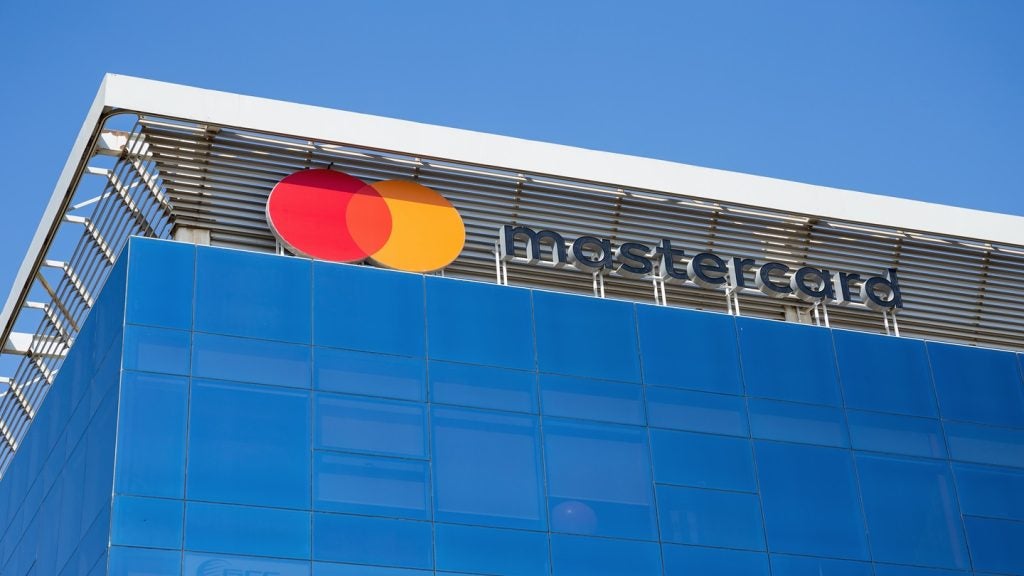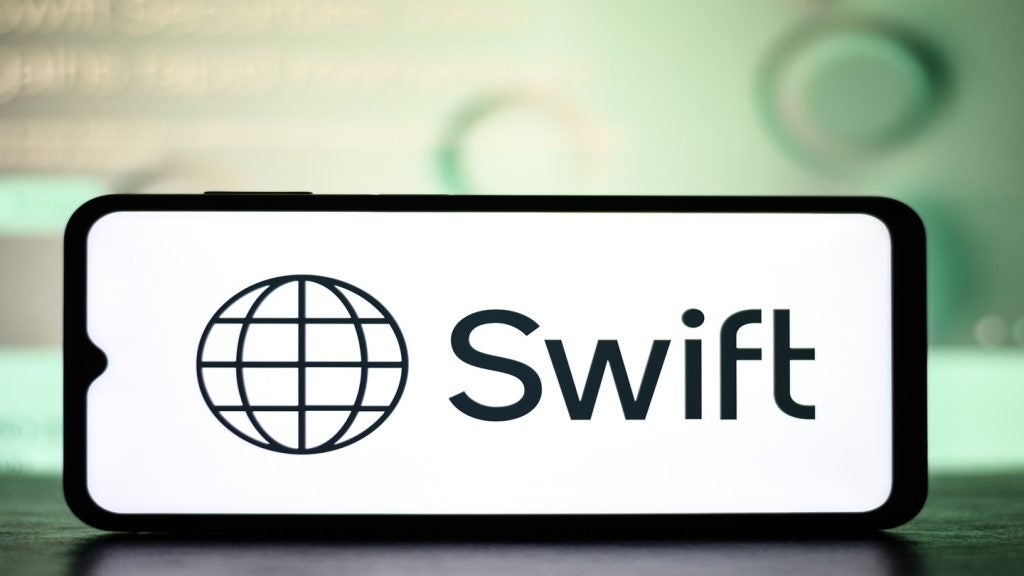TSYS bids farewell to WaMu processing…
US online retailers’ $4bn fraud burden…
Online banking security on a card…
UK-Kenya remittances set to go mobile…
PayMate takes mobile payments to Nepal…
News Digest
How well do you really know your competitors?
Access the most comprehensive Company Profiles on the market, powered by GlobalData. Save hours of research. Gain competitive edge.

Thank you!
Your download email will arrive shortly
Not ready to buy yet? Download a free sample
We are confident about the unique quality of our Company Profiles. However, we want you to make the most beneficial decision for your business, so we offer a free sample that you can download by submitting the below form
By GlobalData
TRANSACTION PROCESSING
TSYS bids farewell to WaMu processing
JPMorgan Chase’s (Chase) purchase of failed US bank Washington
Mutual (WaMu) in September has had an unfortunate outcome for
payments processor TSYS. As from March 2009 JPMorgan will take the
processing of WaMu’s consumer card portfolio in-house, though this
will still be on the technology platform it licences from TSYS.
Prior to running into financial difficulties, WaMu was the US’
sixth-largest bank card issuer with its card division boasting
about 11 million customers and $27 billion in receivables.
According to TSYS, WaMu accounted for less than 4 percent of its
revenues in the first nine months of 2008. TSYS, which will receive
an undisclosed amount from Chase for the early termination of the
processing contract, believes loss of the WaMu business will not
have a material adverse effect on its financial condition.
On a positive note, Chase has extended its Canadian card
processing agreement with TSYS until April 2012.
HEALTH INSURANCE
Electronic payments gain ground in US healthcare
market
Electronic payments in the US’ health industry is experiencing
robust growth, indicate volumes being processed by OptumHealth, a
unit of largest health insurer UnitedHealth.
OptumHealth reports that in October this year the number of
electronic payments and statements processed reached 11 million, up
26 percent compared with October 2007. In addition, the number of
healthcare service providers using OptumHealth’s electronic payment
service increased by 30 percent to 366,000.
In total, OptumHealth anticipates processing over 130 million
claims and payments in 2008, an impressive number but still a small
fraction of the health industry’s total.
According to OptumHealth, of the total 2.7 billion medical
claims processed annually by US health insurers and other
third-party payers, only 20 percent (about 540 million) are paid
with remittance advices transmitted electronically.
ONLINE PAYMENTS
US online retailers’ $4bn fraud burden
US online retailers (e-retailers) will sustain fraud losses of
$4 billion in 2008, up 8.1 percent compared with 2007, estimates
online security specialist CyberSource. However, higher losses were
in tandem with rising online volumes and will come in at 1.4
percent of revenue, the same as 2007 and 2006, noted
CyberSource.
Also maintaining an established pattern, foreign online orders
proved riskier. CyberSource found that in 2008 the fraud rate on
orders accepted by merchants averaged 1.1 percent of revenue for US
and Canadian customers but was 3.6 times higher on international
orders.
On a positive note, CyberSource noted that while fraud levels
remained constant, e-retailers rejected 2.9 percent of orders
because of concerns about fraud, down from 4.2 percent in 2007.
“Falling rejection rates coupled with steady fraud levels imply
merchants are more successful this year at fighting fraud,”
observed CyberSource.
SECURITY
Black Friday lives up to its name
The day following the US Thanksgiving Day holiday is one of the
country’s busiest shopping days. Termed Black Friday because of
resultant traffic jams makes it a day many consumers would choose
to shop online, something criminals awaited eagerly.
According to payment industry service supplier Retail Decisions
(ReD) the US online retail market experienced a staggering 40
percent increase in attempted online fraud on Black Friday compared
with a year earlier.
“Forty percent uplift in attempted online card fraud is a
dramatic increase,” said ReD CEO Carl Clump.
“Retailers are being hit from all angles, with the economic
downturn accompanied by an increase in attempted fraud. The damage
from online fraud can be extensive to businesses, and its
reputation as well as hitting the bottom-line hard.”
In addition to the surge in online fraud on Black Friday, ReD
observed that the value of attempted fraud transactions increased
by 25 percent to an average of $248. Favourite items targeted by
criminals included virtual gift cards, Givenchy perfume, Lancôme
and Estee Lauder cosmetics.
ReD’s card fraud prevention service monitors some 16 billion
card transactions annually.
MOBILE BANKING
US small businesses’ unmet demand
Many small businesses in the US would jump at the opportunity of
using mobile devices to perform banking transactions, reveals a
study by research firm Aite. Regrettably, few banks are paying heed
to this latent demand.
Based on Aite’s research 60 percent of US small businesses bank
online and are showing a greater demand for multi-channel banking,
including mobile banking services.
For example, 35 percent of small businesses banking online would
be “extremely likely or likely” to use a mobile device to check
account balances. However, of 50 of the largest US banks surveyed
between July and September 2008 only 4 percent offered this option
to their small business clients.
Similarly, 25 percent of small businesses banking online would
be “extremely likely or likely” to use mobile devices for
intra-bank transfers and bill payments. The former service is
offered by only 2 percent of banks surveyed and the latter service
by 1 percent.
“Small businesses clearly show a need for mobile banking, and
the segment offers banks a real opportunity to monetise the
service, something that has remained largely elusive thus far,”
commented Aite senior analysts Nick Holland.
INTERNET BANKING
Online banking security on a card
Released to brokerage customers in late-2007, Bank of America’s
(BofA) latest addition to its online security lineup, the SafePass
card has been made available to individual and small business
internet banking customers.
The wallet-sized SafePass card builds on BofA’s SafePass, a
one-time-use, six-digit code sent as a text message to consumers’
mobile phones to authorise transactions. With the card alternative
consumers press a button embedded in the card to receive a
six-digit code which, as in the text message service, expires if
not used within 10 minutes of receipt. The SafePass card is
available for a one-time fee of $19.99, while the mobile
phone-based SafePass service is free.
In addition to SafePass, online security is provided by SiteKey
a solution that enables customers to confirm that they are
accessing a legitimate BofA website.
With 25.3 million active subscribers BoA’s online banking
services are the most widely used in the US. In the first nine
months of 2008 BofA recorded an annualised 2.35 billion visits to
its website.
INTERNET BANKING
OneVu to take UK mobile top-ups online
OneVu, a UK internet bank bill payments service provider, has
its eye on another substantial market: pre-paid mobile phone
airtime top-ups.
OneVu’s service, a UK-first, is planned for launch in the second
quarter of 2009 will enable internet banking users to top-up their
phones and those of friends and family through a bank’s online
website.
“Today a large percentage of top-ups are being made through
retail channels that represent a high cost of sale for the mobile
operators,” said OneVu CEO Miles Quitmann. “We aim to help them
lower costs by providing a new channel for their customers that is
secure, convenient and more cost effective.”
According to OneVu the UK prepay mobile phone top-up market is
worth over £4.2 billion ($6.2 billion) annually and that an
estimated 15 percent of top-ups will be made through internet banks
by 2014.
OneVu is a joint venture between UK transaction processor
VocaLink and US payments technology vendor Fiserv’s online bill
payments service CheckFree.
MOBILE PAYMENTS
Ivory Coast gets Orange money
Two French companies, mobile network operator Orange and banking
group BNP Paribus have joined forces to launch Ivory Coast’s first
mobile payments service.
The service, Orange Money, enables mobile prepay recharges of up
to XOF10,000 ($195), cash withdrawals of up to the same amount,
person-to-person transfers and bill payments from Orange Money
accounts.
To subscribe to the service consumers in the West African
country do not require a bank account but must be Orange customers.
Orange Money accounts are activated for free and without any
minimum deposit and all Orange Money transactions guaranteed
against theft and fraud.
Ivory Coast is the first country in which the Orange Money
account service has been launched and, said Orange’s international
executive director Africa, Middle East and Asia Pacific, Marc
Rennard, marks the start of the service’s deployment in other
countries in which Orange over the coming months.
Orange has units in 15 African countries, three developing
European markets and seven developing markets in the Middle East
and Asia-Pacific regions.
MOBILE PAYMENTS
UK-Kenya remittances set to go mobile
One of the big mobile payments success stories the M-PESA
service in Kenya has attracted over for million users since its
launch in March 2007. M-PESA is now set to go international in a
pilot project enabling money transfers between the UK and
Kenya.
Partnering in the project are the M-PESA service provider,
Kenyan mobile network operator Safaricom, global remittance
specialist Western Union and UK telecommunications company VodaFone
which has stake of about 35 percent in Safaricom.
Running on Western Union’s cross border remittance processing
platform, service availability in the UK will initially be confined
to Western Union agents based in Reading. On the Kenyan leg of a
remittance receivers will be able to use their funds in a variety
of ways, including visiting one of 4,000 M-PESA agents to withdraw
cash or forwarding it on to another M-PESA mobile payments customer
in Kenya.
In 2007 Kenya received about $1.3 billion in international
remittances, according to the World Bank. About 20 percent of
remittances were from the UK.
REMITTANCES
Barclays joins Indian remittance race
Barclays Bank has launched a new remittance service Barclays
Online Money Transfer targeting its significant number of
non-resident Indian customers in the UK. The service enables
payments of between £250 ($370) and £3,000 to be sent to any
Barclays account in India.
For the new service Barclays has partnered with Indian online
remittance specialist TimesofMoney, a unit of India’s largest media
company, Times Group. Barclays’ remittance service to India will
soon be extended to customers in other countries.
Of note, reports from Times Group companies carried on
TimesofMoney’s website indicate substantial growth in inbound
remittances to India. For example, State Bank of India, which
accounts for over a quarter of inward remittances, reported a 56
percent year-on-year increase in October 2008.
Factors driving strong growth cited include the depreciation of
the Indian rupee against the US dollar and the attractiveness of
Indian bank deposit rates. A study by the Reserve Bank of India
found that 54 percent of inbound remittances are for family support
and the balance for investment purposes.
SEPA
EUFISERV declares itself SEPA-ready
A restructuring of EUFISERV, the payments services operation of
European banking association the European Savings Bank Group, has
been completed. The objective was to comply with the European
Central Bank’s and European Commission’s Single Euro Payments Area
(SEPA) requirements.
Restructuring required separating EUFISERV’s interbank
processing business and its ATM scheme. This was initiated in
late-2007 by hiving off the processing business into a new company
in which US payments processor First Data acquired a 50 percent
stake in September 2008.
Renamed Trionis, the payment processing company plans to link to
First Data’s network, a move that would provide access to up to
74,000 ATMs, 1.5 million POS terminals and 165 million card
accounts across Europe.
EUFISERV’s now standalone ATM scheme has over 600 European
participating banks and some 67 million EUFISERV branded debit
cards in issue. The cards are accepted at 68,000 EUFISERV branded
ATMs across Europe.
Initiatives in the spirit of SEPA are also underway with other
European ATM schemes to expand services on a bilateral basis. In
the first such move, EUFISERV ATM scheme members in Belgium,
France, Spain and Portugal accept German debit cards which are not
co-branded as part of an international card scheme. The agreement
is reciprocal.
MOBILE PAYMENTS
PayMate takes mobile payments to Nepal
Described by the US Central Intelligence Agency as one of the
world’s poorest countries, Nepal typifies environments where mobile
phones can provide a low-cost payments solution.
It is a solution Indian company PayMate has brought to Nepal
with the launch of its mobile payment services in conjunction with
its local representative PayBill and Nepal’s largest mobile service
provider Nepal Telecom (NT).
The service which is being introduced in conjunction with
Nepal’s largest private bank, Everest Bank initially offers 2.2
million NT subscribers a mobile recharge capability and will
gradually be extended to include person-to-person money transfers,
bill payments, ticket purchases and retail payments. The free
service can be linked to debit or credit card accounts.
To enrol for the service customers register their mobile number
with Everest Bank and receive a four digit PayBill PIN. When using
the service a customer shares the mobile number with the merchant
and instantly receives a text message requesting payment
authorisation. The customer replies with their PIN and a dynamic
three digit code which are authenticated by PayBill. Confirmation
of the transaction is sent to the customer and merchant within a
few seconds and the customer’s bank account is debited
instantly.







